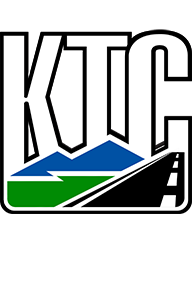Search for articles or browse our knowledge portal by topic.
Utilizing Statewide Consultant Contracts
| Utilizing Statewide Services Contracts | Project Classification | |||
| Capital Improvement Projects | Safety Projects | Asset Management Projects | Maintenance Projects | |
| 1. Current Statewide Services Contracts | x | x | x | x |
| 2. Advertising for Statewide Services Contracts | x | x | x | x |
| 3. Key Features of Statewide Services Contracts | x | x | x | x |
| x = Information from the topic may be applicable for the project classification. | ||||
One type of contract KYTC uses to acquire professional engineering and engineering-related services is the statewide services contract. Statewide contracts follow the same advertisement process; however, after selection and procurement is complete, they act as on-call contracts, allowing Project Managers (PMs) the flexibility to quickly use professional services on an as-needed basis. These contracts provide services that help deliver many programs. Statewide contracts provide additional — typically specialized — resources for user divisions and can be used on an as-needed basis. They are beneficial because assignments can be issued quickly to meet project schedules rather than being delayed for a full procurement process. Although in-house staff can perform many of the tasks covered by these contracts, when in-house resources and expertise are unavailable, statewide services can fill the gaps. Check the Division of Professional Services website for a full list of services available through statewide contracts and the user divisions that manage them.
The Division of Professional Services advertises statewide services during the same procurement process as other projects. One or more consultants can be selected depending on the user division needs and capacity to deliver. A PM from the user division is assigned to help distribute work and manage these contracts. Most statewide consulting contracts identify an overall upset limit for each contract. The upset limit is the maximum amount that can be spent under the Master Agreement (MA), or the contract. The upset limit may only be exceeded by a formal contract modification after approval by the State Highway Engineer’s (SHE) Office and the Secretary, then must receive LRC approval. Individual projects for each MA are made per assignment by Letter Agreement (LA). Usually, multiple LAs are assigned under each contract. Each LA also has an upset limit. On rare occasions and for urgent needs, LA upset limits may be increased with the written approval of the SHE.
Standard language in the procurement document (a) specifies the number of consultants that will be selected to provide services for a period of two years and (b) stipulates that no new work will be assigned under the contract after two years from the notice to proceed. However, the original contract term may be extended to complete work already assigned.
Once the upset limit is reached or the two-year term has expired, services may be re-advertised, and no additional LAs are assigned under the contract. Unless approved by contract modification, contracts will not be modified to increase the upset limit or extended in duration to assign new work. No LA can exceed the upset limit without the SHE’s written approval.
Under statewide contracts, project work is assigned to consultants on a rotating basis and a LA is developed for each assignment. If there is a cost or schedule benefit to the agency, KYTC can select a consultant that is not next in the rotation. The Cabinet can also bundle assignments. A consultant selected out of order is generally skipped in the rotation when their next turn comes. After this, the regular rotation resumes. A consultant is usually not offered an additional project until the remaining firms on the list have received a project offer. If a firm declines a project, it is ineligible to accept another project until all other firms on the list have been offered a project.
Statewide contracts are valuable tools for facilitating project delivery. During project development, situations emerge which influence resource availability (e.g., schedules change, other projects within a user division are assigned a higher priority). Statewide contracts let PMs work with user divisions to obtain resources and/or expertise to deliver their project. If needed, multiple statewide contracts for a variety of services can be used to complete a project.
After KYTC selects consultants for a statewide contract, the statewide PM holds a scoping meeting with the selected consultants to communicate the intent of the contract, how assignments will be made, and invoicing instructions. Individual assignments are executed via a LA that clarifies the scope of work and anticipated level of effort to deliver. The statewide PM sends an email to the consultant notifying them of an assignment. This email serves as a notice to proceed since the MA has already been issued. A major advantage of statewide contracts is that work can begin much quicker than under the standard procurement process. Consultants operating under statewide contracts can begin work while the LA is estimated, negotiated, and finalized.
Typically, LAs on statewide contracts are negotiated as lump sum. However, KYTC may use statewide contracts for tasks where unit prices are requested (e.g., traffic counting, geotechnical drilling, right of way). KYTC may also use specific rate of compensation contracts for certain contracts (e.g., construction inspection services) or a cost-plus-a-fixed-fee contract for many bridge maintenance contracts. Other statewide contracts may identify an approximate fee in the advertisement for a full contract and the negotiation process is similar to a project-specific contract. Special instructions in the advertisement describe the contracting method.
Once an assignment is made, with a few exceptions, the PM manages the statewide consultant as they would on other projects. For some statewide contracts (e.g., Highway Design), a PM may be assigned to the individual LA or project. When this occurs the manager of the statewide contract in the user division retains administrative responsibilities. Invoices are executed by the user division PM and generally processed by the Division of Professional Services. For statewide contracts, production-hours can be negotiated directly and do not require independent estimates from the KYTC PM and the consultant if the production-hours do not exceed 500. Spreadsheet templates are available from the Division of Professional Services for submitting production-hours. The consultant portal is not currently used for statewide contract negotiations. Once the final invoice from the last active LA on the MA is processed the statewide contract will be closed.
Project Management Guidebook Intro and Overview
KYTC’s Highway Design Manual, HD-205
KYTC’s Professional Services Guidance Manual, 15-04 and 15-05
KYTC’s Planning Guidance Manual, PL-206
Administration of Consultant Contract Knowledge Book (part of the Project Management Guidebook Knowledge Book):
Access the complete Knowledge Book here: Administration of Consultant Contracts
Next Article: Reviewing a Pay Invoice
Previous Article: Understanding a Consultant Contract

